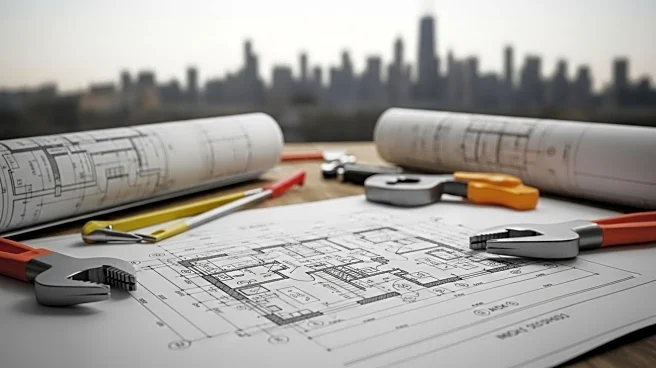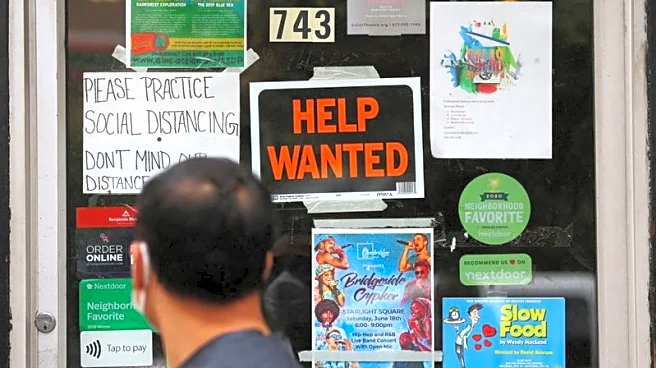What's Happening?
In Chicago, the development of accessory dwelling units (ADUs), such as granny flats, is facing political challenges due to union involvement. A proposed ordinance to allow more ADU construction has been stalled in the City Council, with debates over unionized labor requirements complicating the issue. Two competing proposals are under consideration: one by Ald. Bennett Lawson to permit ADUs in all residential zones with zoning administrator approval, and another by Ald. Marty Quinn allowing aldermen to veto ADUs in their wards, with a union-backed requirement for apprenticeship programs. The council is set to vote on the issue next week.
Why It's Important?
The debate over ADU development in Chicago highlights the broader challenges of addressing the city's housing crisis. ADUs are seen as a potential solution to increase housing stock and affordability, but the involvement of unions and political maneuvering has complicated the process. The outcome of this debate could have significant implications for the city's housing market, potentially affecting the availability and cost of housing. It also underscores the tension between political interests and the urgent need for residential development in Chicago.
What's Next?
The upcoming City Council vote will be a critical moment for the future of ADU development in Chicago. If the ordinance passes, it could pave the way for increased housing options and affordability. However, if political and union interests continue to dominate the discussion, the city's housing crisis may persist. Stakeholders, including city officials, developers, and community groups, will need to navigate these challenges to find a viable path forward for addressing Chicago's housing needs.












